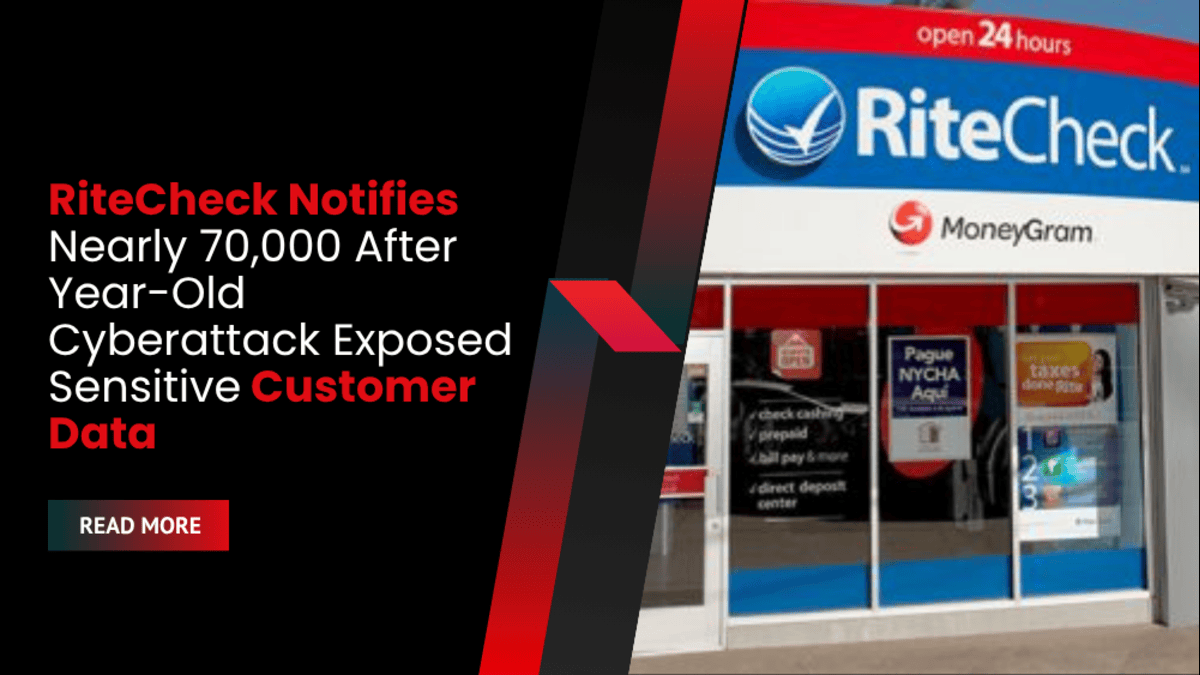RiteCheck Cashing, a financial services provider operating in New York, has confirmed a data breach that exposed the personal and financial information of more than 68,000 individuals. The breach occurred in August 2024, but customers and employees are only now receiving notification of the incident nearly a year later.
The company disclosed the breach in filings with the Maine Attorney General’s Office and began issuing formal notifications this week to those affected. According to the notification letter, an “unauthorized user” gained access to RiteCheck’s servers late last August, triggering a lengthy investigation into what data was compromised.
“The contents of the server were reviewed, and it was discovered that personal information belonging to a subset of RiteCheck customers and employees was potentially impacted as a result of the incident,” the breach notice states.
Scope of the Data Breach and the Information Exposed
RiteCheck confirmed that the compromised data included sensitive personally identifiable information (PII) and payment card details. The impacted information may include:
- Names
- Addresses
- Dates of birth
- Social Security numbers
- Driver’s license numbers
- Government-issued identification numbers
- Payment card numbers
The nature of the breach puts exposed individuals at high risk of identity theft, account takeovers, and financial fraud. If malicious actors obtained all the listed data types, it could enable fraudulent loan applications, creation of synthetic identities, or unauthorized access to financial accounts.
Stolen payment card details are also known to be sold in underground markets or used to facilitate further criminal activity. The 11-month delay in detection and response may have provided attackers with enough time to exploit the stolen data before any safeguards were in place.
RiteCheck’s Response Measures and Mitigation Efforts
RiteCheck stated that in the wake of the breach, it took immediate steps to secure its systems. The company implemented password resets for user accounts and deployed new security tools to monitor threats and endpoints more effectively.
As part of its mitigation strategy, RiteCheck is offering affected individuals 12 months of free credit monitoring and identity theft protection services. The company has not provided specifics on how the breach occurred or whether any systems were patched or replaced.
The delayed disclosure raises questions about incident detection timelines and how long threat actors had access to sensitive financial and personal data. For a business that handles high volumes of check-cashing and financial transactions, such a prolonged gap between breach and notification underscores significant cybersecurity and risk management challenges.









